Strictly Personal
Naira redesign and matters arising, By Bashir Abdullahi
Published
2 years agoon
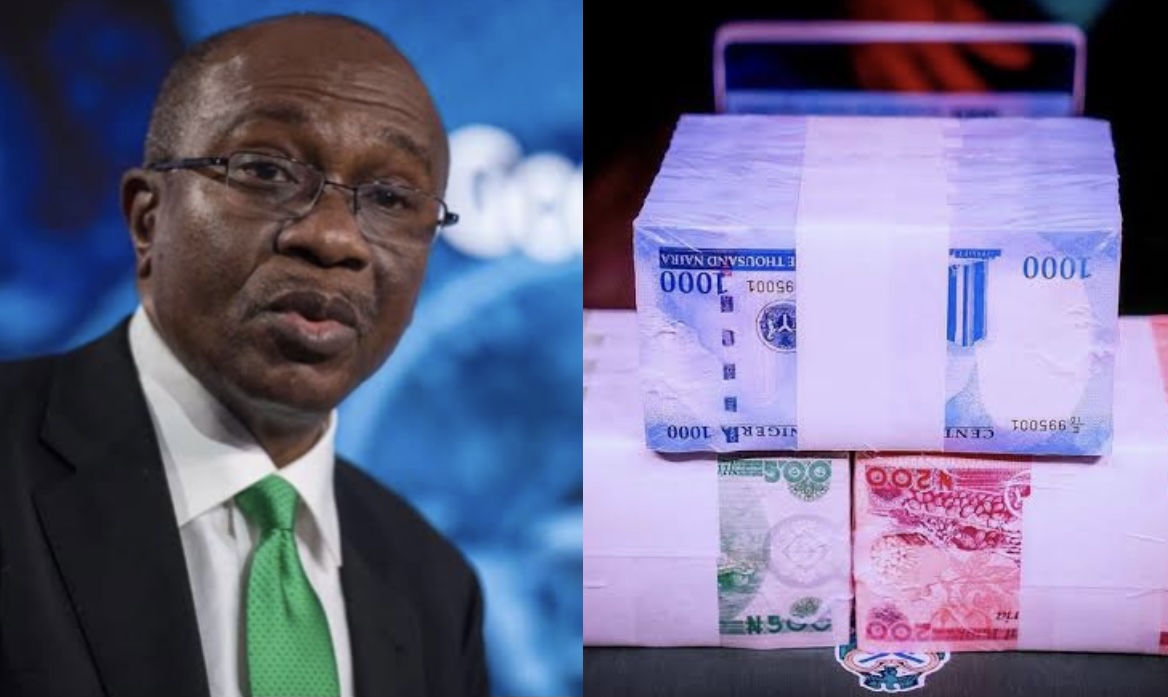
LET me begin this with a disclaimer. I am a registered card-carrying member of the New Nigerian Peoples Party (NNPP). Let me also make it abundantly clear that my party and I are not against the Naira redesign policy. In fact, no sane human will. In the 21st century, we should go the way of the world. A cashless policy is the norm and has become the mainstay of most economies, both developed and developing. I applaud President Muhammadu Buhari for his resolve, determination, and commitment to conducting a free, fair, and credible election. There is the possibility that, if conducted successfully, these might be the talk about the legacy of the president. Having said this, let me add that for a country of almost a million square kilometres, the time allotted to the policy is not just sufficient but practically impossible to cover within the period given. And this must be appreciated from the background of the level of the general inefficiencies of our system and how such reforms can be resisted, and in some instances outrightly thwarted.
Available data from the National Bureau of Statistics show that most households have an average of a minimum of five persons. What this clearly signifies is that most people struggle daily to get by. Living in Nigeria, daily, in itself is a challenge. This is something that the various political shades seeking power acknowledge hence the litany of issues they promised to do when elected into office. The 1999 Constitution as amended accounts for the equality of states as per federalism, but even the blind can see that Lagos State in the South-West for instance is not equal to Yobe State in the North-East, or Ebonyi in the South-East to Kano in the North-West. Clearly, Lagos is much more urbanised than Yobe and the same is true for Kano and Ebonyi. What this invariably means is that Lagos is more likely to have better banking services than Yobe. The same argument can be made for Kano and Ebonyi. The service penetration is not the same and the data on banking services in Nigeria clearly shows this. In a sense, the more sophisticated a banking service is the more it is urban located. This is certain of major innovations in banking services, which againfollow the logic of where money is concentrated.
While it is true that every government policy should be made for the benefit of the people, let me now quickly examine the Central Bank of Nigeria’s cashless policy vis-à-vis the unintended negative consequences and suffering it brought to the very people it claims to serve. And it must be repeated here that this is by no means an attack on the policy itself, as some have.
The governor of the Central Bank of Nigeria, Dr. Godwin Emefiele, on countless occasions, explained the objectives of the Naira redesign policy and on no account did he make claims that are of political or non-economic reasons. The policy was purely monetary with expected positive economic outcomes for Nigeria. However, as all policies do, particularly when not thought through, they tend to become victims of their unintended consequences. The apex bank may have had good intentions to deliver on an otherwise operable monetary policy, but has the implementation created enumerable situations and countless hardships? The unintended consequences of the Naira redesign policy are in the numbers, but what is amazing is the “neglect” or negligence by the Central Bank officials whilst framing the policy, the list of what could go wrong. A part of thenitty-gritty of general housekeeping of public policymaking is IF. The question must, therefore, be what could go wrong if we, that is the Central Bank, did this or that. The Nigerian apex bank missed a lot of signs, innuendos, which were obvious and in the open, and more importantly its capabilities.
The responsibility of the Central Bank of Nigeria, for example, does not include the assessment of possible social disorder, and the disenchantments the unintended consequences of the redesign of the Naira caused. This again, showed, that the bank was working in a silo, not reaching, consulting, or collaborating. Perhaps, what it is, is that the Central Bank sought glory but brought gory tales. It remains to be seen if the Central Bank of Nigeria considered what could go wrong if the Naira wasredesigned at the time, it implemented the policy. This also raises questions as to whether the three months to complete the exercise was sufficient. Three issues are clear from this. First, whether the Nigerian banking infrastructure is asbig as was thought of? Secondly, Did the Central Bank of Nigeria miss an obvious challenge or opportunity that there is still work to be done, regarding the depth and breadth of the country’s banking system? The Nigerian banking system has remained largelyu rban-biased and has evolved very little to serve infrastructures in rural areas. Perhaps, this is why the apex bank governor persistently complains about the quantity of cash outside the banking system. This clearly shows that there are gaps in the CBN’s efforts at providing banking services across the country. The banking system must innovate a new robust financial infrastructure that not only resolves many of the problems Nigerians are currently encountering but deepen and broaden inclusiveness and participation.
The question of the timing of policy is important. As much as it can be argued, and it has been, that there is no particularly suitable time to effect a change or redesign a country’s currency, the Central Bank Act is already clear on this. Thus, in some regards the monetary authority failed in the discharge of her responsibility on time, more importantly, to anticipate when. Here in lies the basis for the political interpretation of the CBN’s decision on timing. The question has therefore become about when and over what duration, and not about what. But, more importantly, policy makers must be able to anticipate the consequences, especially the negative unintended consequences. Across the country are Nigerians standing in long queues at ATM galleries across the country attempting to access the new currency notes. We have also seen videos of Nigerians stripping naked in banking halls, shouting and crying to access their own money. The comics in these, including the number of fights breaking out in banking premises and all the attendant hardships, beg the question.
The failure in the exercise can be seen in the level of exploitation of citizens who try to access their own money from POS operators and various money agents.
Nigerians’ problems have never been the lack of brilliant ideas and plans, but the implementation of it. It is against this background that I humbly call on President Muhammad Buhari to urgently address the issues caused by the naira redesign by allowing the old notes and new ones to coexist side by side, otherwise, the very people whom you want to serve will be heading to their early graves in millions as a result of the unintended hardship. By the way, the people elected you and it is profitable to listen to their cries.
You may like
-


Following backlash, Nigerian govt withdraws treason charges against minors
-


Tiinubu committed to easing hardship Nigerians are going through— Info Min, Idris
-
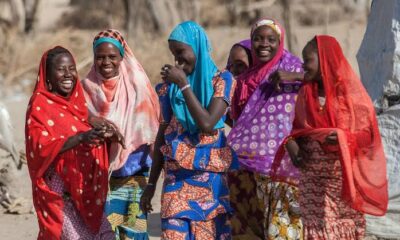

Nigeria: Human Rights Commission records 3,099 cases of child marriages in three months
-


Nigerian govt, EU sign £17.9m off-grid electricity deal
-
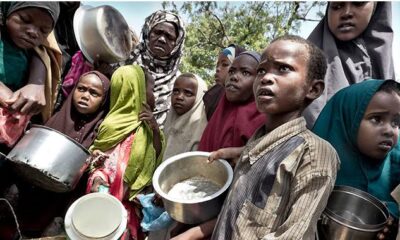

33.1m Nigerians to face food crisis in 2025– Report
-
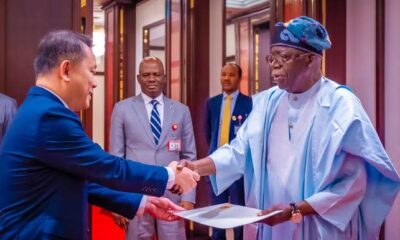

Translate friendships into economic gains, Tinubu tells foreign countries
Strictly Personal
African Union must ensure Sudan civilians are protected, By Joyce Banda
Published
2 weeks agoon
October 25, 2024
The war in Sudan presents the world – and Africa – with a test. This far, we have scored miserably. The international community has failed the people of Sudan. Collectively, we have chosen to systematically ignore and sacrifice the Sudanese people’s suffering in preference of our interests.
For 18 months, the Rapid Support Forces (RSF) and the Sudanese Armed Forces (SAF) have fought a pitiless conflict that has killed thousands, displaced millions, and triggered the world’s largest hunger crisis.
Crimes against humanity and war crimes have been committed by both parties to the conflict. Sexual and gender-based violence are at epidemic levels. The RSF has perpetrated a wave of ethnically motivated violence in Darfur. Starvation has been used as a weapon of war: The SAF has carried out airstrikes that deliberately target civilians and civilian infrastructure.
The plight of children is of deep concern to me. They have been killed, maimed, and forced to serve as soldiers. More than 14 million have been displaced, the world’s largest displacement of children. Millions more haven’t gone to school since the fighting broke out. Girls are at the highest risk of child marriage and gender-based violence. We are looking at a child protection crisis of frightful proportions.
In many of my international engagements, the women of Sudan have raised their concerns about the world’s non-commitment to bring about peace in Sudan.
I write with a simple message. We cannot delay any longer. The suffering cannot be allowed to continue or to become a secondary concern to the frustrating search for a political solution between the belligerents. The international community must come together and adopt urgent measures to protect Sudanese civilians.
Last month, the UN’s Independent International Fact-Finding Mission for Sudan released a report that described a horrific range of crimes committed by the RSF and SAF. The report makes for chilling reading. The UN investigators concluded that the gravity of its findings required a concerted plan to safeguard the lives of Sudanese people in the line of fire.
“Given the failure of the warring parties to spare civilians, an independent and impartial force with a mandate to safeguard civilians must be deployed without delay,” said Mohamed Chande Othman, chair of the Fact-Finding Mission and former Chief Justice of Tanzania.
We must respond to this call with urgency.
A special responsibility resides with the African Union, in particular the AU Commission, which received a request on June 21 from the AU Peace and Security Council (PSC) “to investigate and make recommendations to the PSC on practical measures to be undertaken for the protection of civilians.”
So far, we have heard nothing.
The time is now for the AU to act boldly and swiftly, even in the absence of a ceasefire, to advance robust civilian protection measures.
A physical protective presence, even one with a limited mandate, must be proposed, in line with the recommendation of the UN Fact-Finding Mission. The AU should press the parties to the conflict, particularly the Sudanese government, to invite the protective mission to enter Sudan to do its work free from interference.
The AU can recommend that the protection mission adopt targeted strategies operations, demarcated safe zones, and humanitarian corridors – to protect civilians and ensure safe, unhindered, and adequate access to humanitarian aid.
The protection mission mandate can include data gathering, monitoring, and early warning systems. It can play a role in ending the telecom blackout that has been a troubling feature of the war. The mission can support community-led efforts for self-protection, working closely with Sudan’s inspiring mutual-aid network of Emergency Response Rooms. It can engage and support localised peace efforts, contributing to community-level ceasefire and peacebuilding work.
I do not pretend that establishing a protection mission in Sudan will be easy. But the scale of Sudan’s crisis, the intransigence of the warring parties, and the clear and consistent demands from Sudanese civilians and civil society demand that we take action.
Many will be dismissive. It is true that numerous bureaucratic, institutional, and political obstacles stand in our way. But we must not be deterred.
Will we stand by as Sudan suffers mass atrocities, disease, famine, rape, mass displacement, and societal disintegration? Will we watch as the crisis in Africa’s third largest country spills outside of its borders and sets back the entire region?
Africa and the world have been given a test. I pray that we pass it.
Dr Joyce Banda is a former president of the Republic of Malawi.
Strictly Personal
Economic policies must be local, By Lekan Sote
Published
2 weeks agoon
October 24, 2024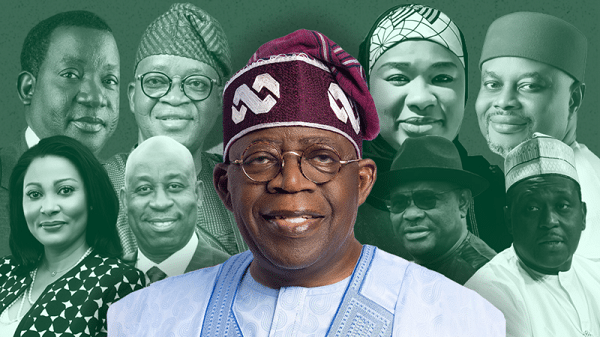
With 32.70 per cent headline inflation, 40.20 per cent food inflation, and bread inflation of 45 per cent, all caused by the removal of subsidies from petrol and electricity, and the government’s policy of allowing market forces to determine the value of the Naira, Nigerians are reeling under high cost of living.
The observation by Obi Alfred Achebe of Onitsha, that “The wellbeing of the people has declined more steeply in the last months,” leads to doubts about the “Renewed Hope” slogan of President Bola Tinubu’s government that is perceived as extravagant, whilst asking Nigerians to be patient and wait for its unfolding economic policies to mature.
It doesn’t look as if it will abate soon, Adebayo Adelabu, Minister of Power, who seems ready to hike electricity tariffs again, recently argued that the N225 per kilowatt hour of electricity that Discos charge Band A premium customers is lower than the N750 and N950 respective costs of running privately-owned petrol or diesel generators.
While noting that 129 million, or 56 per cent of Nigerians are trapped below poverty line, the World Bank revealed that real per capita Gross Domestic Product, which disregards the service industry component, is yet to recover from the pre-2016 economic depression under the government of Muhammadu Buhari.
This has led many to begin to doubt the government’s World Bank and International Monetary Fund-inspired neo-liberal economic policies that seem to have further impoverished poor Nigerians, practically eliminated the middle class, and is making the rich also cry.
Yet the World Bank, which is not letting up, recently pontificated that “previous domestic policy missteps (based mainly on its own advice) are compounding the shocks of rising inflation (that is) eroding the purchasing power of the people… and this policy is pushing many (citizens) into poverty.”
It zeroes in by asking Nigeria to stay the gruelling course, which Ibukun Omole thinks “is nothing more than a manifesto for exploitation… a blatant attempt to continue the cycle of exploitation… a tool of imperialism, promoting the same policies that have kept Nigeria under the thumb of… neocolonial agenda for decades.”
When Indermilt Gill, Senior Vice President of the World Bank, told the 30th Summit of Nigeria’s Economic Summit Group, in Abuja, Federal Capital Territory, that Nigerians may have to endure the harrowing economic conditions for another 10 to 15 years, attendees murmured but didn’t walk out on him because of Nigerian’s tradition of politeness to guests.
Governor Bala Muhammed of Bauchi State, who agrees with the World Bank that “purchasing power has dwindled,” also thinks that “these (World Bank-inspired) policies, usually handed down by arm-twisting compulsions, are not working.”
What seems to be trending now is the suggestion that because these neo-liberal policies do not seem to be helping the economy and the citizens of Nigeria, at least in the short term, it would be better to think up homegrown solutions to Nigeria’s economic problems.
Late Speaker of America’s House of Representatives, Tip O’Neill, is quoted to have quipped that, at the end of the day, “All politics is local.” He may have come to that conclusion after observing that it takes the locals in a community to know what is best for them.
This aphorism must apply to economics, a field of study that is derived from sociology, which is the study of the way of life of a people. Proof of this is in “The Wealth of Nations,” written by Adam Smith, who is regarded as the first scholar of economics.
In his Introduction to the Penguin Classics edition of “The Wealth of Nations,” Andrew Skinner observes: “Adam Smith was undoubtedly the remarkable product of a remarkable age and one whose writing clearly reflects the intellectual, social and economic conditions of the period.”
To drive the point home that Smith’s book was written for his people and his time, Skinner reiterated that “the general ‘philosophy,’ which it contained was so thoroughly in accord with the aspirations and circumstances of his age.”
In a Freudian slip of the Darwinist realities of the Industrial Revolution that birthed individualism, capitalism, and global trade, Smith averred that “How selfish soever man may be supposed, there are evidently some principle in his nature which interest him in the fortune of others, and render their happiness necessary to him, though he derives nothing from it, except the pleasures of seeing it.”
And, he let it slip that capitalism is for the advantage of Europe when he confessed that “Europe, by not leaving things at perfect liberty (the so-called Invisible Hand), occasions… inequities,” by “restraining the competition in some trades to a smaller number… increasing it in others beyond what it naturally would be… and… free circulation of labour (or expertise) and stocks (goods) both from employment to employment and from place to place!”
Policymakers, who think Bretton Woods institutions will advise policies to replicate the success of the Euro-American economy in Nigeria must be daydreaming. After advising elimination of subsidy, as global best practices that reflect market forces, they failed to suggest that Nigeria’s N70,000 monthly minimum wage, neither reflects the realities of the global marketplace, nor Section 16(2,d) of Nigeria’s Constitution, which suggests a “reasonable national minimum living wage… for all citizens.”
After Alex Sienart, World Bank’s lead economist in Nigeria, pointed out that the wage increase will directly affect the lives of only 4.1 per cent of Nigerians, he suggested that Nigeria needed more productive jobs to reduce poverty. But he neither explained “productive jobs,” nor suggested how to create them.
In admitting past wrong economic policies that the World Bank recommended for Nigeria, its former President, Jim Yong Kim, confessed, “I think the World Bank has to take responsibility for having emphasized hard infrastructure –roads, rails, energy– for a long time…
“There is still the bias that says we will invest in hard infrastructure, and then we grow rich, (and) we will have enough money to invest in health and education. (But) we are now saying that’s the wrong approach, that you’ve got to start investing in your people.”
Kim is a Korean-American physician, health expert, and anthropologist, whose Harvard University and Brown University Ivy League background shapes his decidedly “Pax American” worldview of America’s dominance of the world economy.
Despite his do-gooder posturing, his diagnoses and prescriptions still did not quite address the root cause of Nigeria’s economic woes, nor provide any solutions. They were mere diversions that stopped short of the way forward.
He should have advocated for the massive accumulation of capital and investments in the local production of manufacturing machinery, industrial spare parts, and raw materials—items that are currently imported, weakening Nigeria’s trade balance.
He should have pushed for the completion of Ajaokuta Steel Mill and helped to line up investors with managerial, technical, and financial competence to salvage Nigeria’s electricity sector, whose poor run has been described by Dr. Akinwumi Adesina, President of Africa Development Bank, as “killing Nigerian industries.”
He could have assembled consultants to accelerate the conversion of Nigeria’s commuter vehicles to Compressed Natural Gas and get banks of the metropolitan economies, that hold Nigeria’s foreign reserves in their vaults, to invest their low-interest funds into Nigeria’s agriculture— so that Nigeria will no longer import foodstuffs.
Nigerians need homegrown solutions to their economic woes.
EDITOR’S PICK


Mastercard partners Diamond Trust Bank to boost digital payments in East Africa
Mastercard has struck a strategic partnership with Diamond Trust Bank (DTB) to boost digital payments in East Africa with specific...
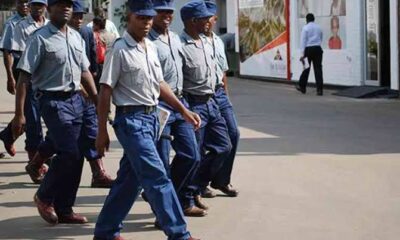

Zimbabwe bans police from using mobile phones while on duty
The Zimbabwean government has banned members of its police force from using mobile phones while on duty. The ban, which...
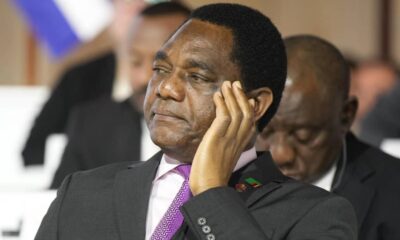

Zambia’s ruling party UPND warns against personal attacks on President Hichilema
Zambia’s ruling party, the UPND, has warned opposition politicians and critics against personal attacks on President Hakainde Hichilema as his...


Kenyan court jails killers of Ugandan Olympian Kiplagat for 35 years
A Kenyan court sitting in Nairobi on Tuesday sentenced two men, Peter Ushuru Khalumi, 30, and David Ekai Lokere, 25,...
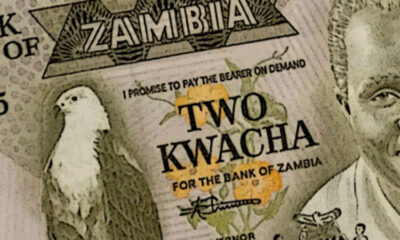

Zambian govt spends K16.6 billion in October on debt servicing, gulping K4.7 billion
Zambian Ministry of Finance and National Planning released K16.6 billion in October to assist Zambian development and public service delivery,...


Following backlash, Nigerian govt withdraws treason charges against minors
The Nigerian government has officially withdrawn the treason charges it entered against some minors who participated in the #EndBadGovernance protest...


Chepkirui leads Kenya to podium sweep at New York City Marathon
Kenya had a clean sweep of the podium at the 2024 New York City Marathon on Sunday as Sheila Chepkirui...
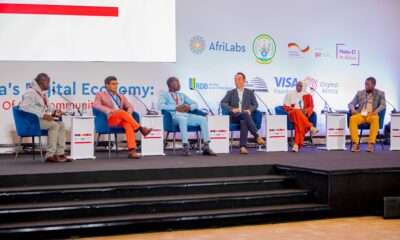

AfriLabs to host ‘Annual Gathering’ in Cape Town
Pan-African innovation hub, AfriLabs, has announced Cape Town, South Africa, as the host of its “Annual Gathering” scheduled to hold...
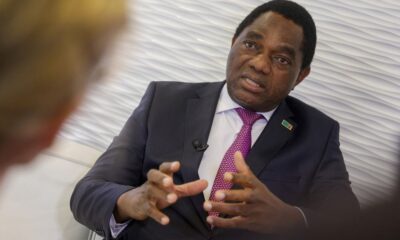

Zambia: President Hichilema urges traditional leaders to invoke rainmaking powers amid drought
Zambian President, Hakainde Hichilema, has called on traditional leaders to call upon their rainmaking powers by praying for rain as...


South Africa: Petrol, diesel prices to rise on Wednesday. Here’s why
Following an increase in the price of oil due to the crisis between Iran and Israel, petrol and diesel prices...
Trending
-

 VenturesNow1 day ago
VenturesNow1 day agoSouth Africa: Petrol, diesel prices to rise on Wednesday. Here’s why
-

 Sports1 day ago
Sports1 day agoChepkirui leads Kenya to podium sweep at New York City Marathon
-

 Metro2 days ago
Metro2 days agoTiinubu committed to easing hardship Nigerians are going through— Info Min, Idris
-

 Metro1 day ago
Metro1 day agoZambia: President Hichilema urges traditional leaders to invoke rainmaking powers amid drought


